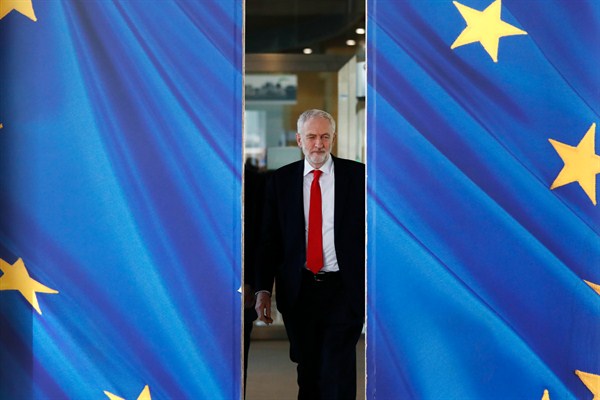Loading your audio article
When the last of the ballots had finally been counted in the recent European Parliament elections, it became abundantly clear that one of the biggest losers was Britain’s Labour Party, and its Brexit strategy most of all. The party finished in third place, behind both Nigel Farage’s Brexit Party and the ardently pro-Remain Liberal Democrats, with a mere 14.1 percent of the total vote. If the results are anything to go by, then Labour’s attempts to appeal to both Leavers and Remainers by being as ambiguous as possible about Brexit have actually had the opposite effect and alienated both sides of this deep divide in the United Kingdom.
Although the Brexit Party was the big winner of the night, topping the polls with 31.6 percent and winning every region in England except London, Farage’s outfit fell 8.8 points short of the combined total accrued by parties seeking to overturn the 2016 referendum on leaving the European Union. This may not serve as resounding proof that the national consensus on Brexit has shifted, but it does show that the country is still irreparably polarized and that those politicians who advocate compromise appeal to the smallest of constituencies.
It appears that the Labour leadership has finally gotten the message, as Jeremy Corbyn seems to be coming around to the idea of putting any final Brexit deal to the public in a new referendum. Of course, Corbyn has made similar noises in the past before backpedaling. This time, however, things feel different. Having lost such a sizable portion of its core vote to parties committed to remaining in the EU, it looks like Corbyn has little other choice.

